George Lloyd (1913 - 1998)
Early Life
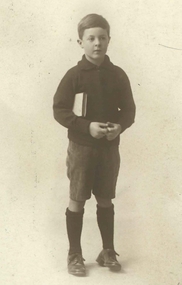 George Lloyd aged 8
George Lloyd aged 8
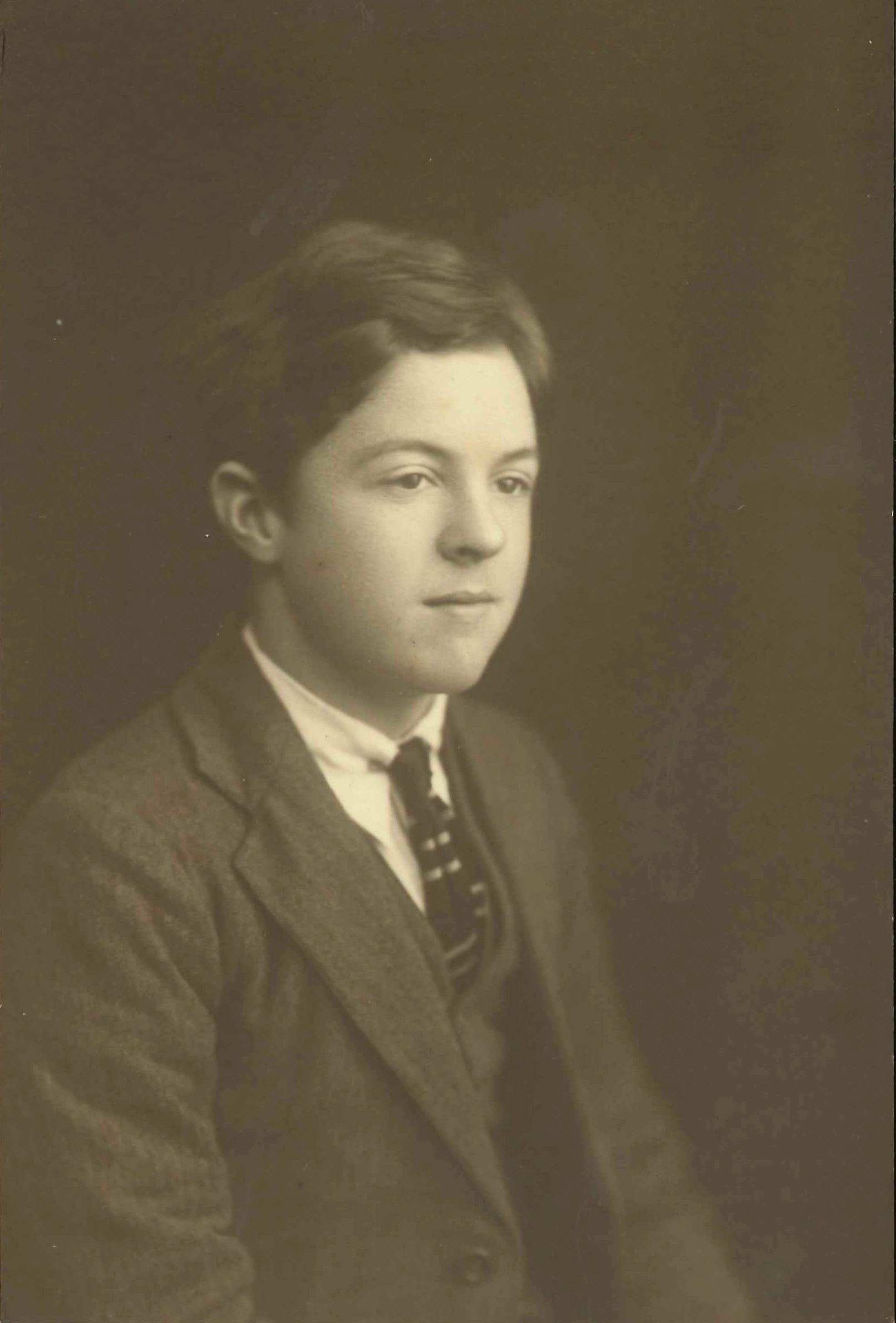 George Lloyd aged 15
George Lloyd aged 15
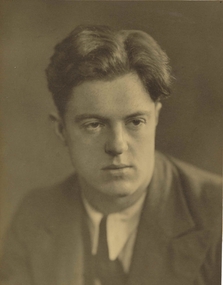 George LLoyd aged 20
George LLoyd aged 20
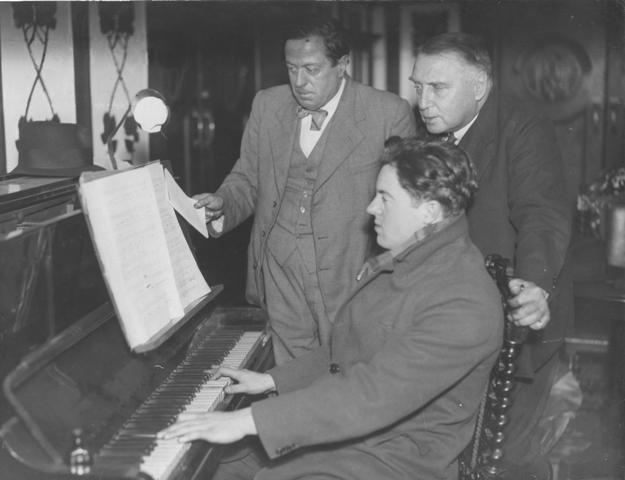 George Lloyd with his father William, and producer Walter Barnes. The Lyceum 1934
George Lloyd with his father William, and producer Walter Barnes. The Lyceum 1934
Born in St Ives, Cornwall, of part Welsh, part American and part Irish ancestry, George Lloyd grew up in a musical family. His father, William A. C. Lloyd, was an accomplished flautist and Italian opera aficionado, who wrote the first English biography of Vincenzo Bellini. He had been born in Rome but returned to England on the death of his father who was a retired naval officer. George Lloyd's mother, Constance Lloyd (née Rawson) played the violin, viola and piano. Both parents were leading members of the St Ives Arts Club, and their house was a regular weekly venue for chamber performances, so that the young composer was always surrounded by music. Even his grandmother, the American painter Frances Powell, had been an opera singer, although she became better known as an early pioneer of the St Ives artists' colony.
Musical Beginnings
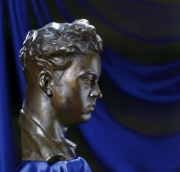 1934 Portrait head by Wilfred Dudeney RBS
1934 Portrait head by Wilfred Dudeney RBS
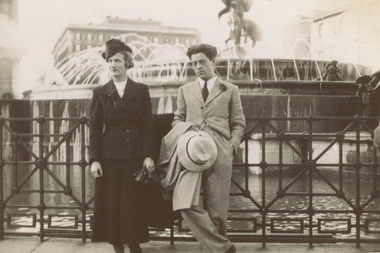 George and Nancy Lloyd, Rome 1937
George and Nancy Lloyd, Rome 1937
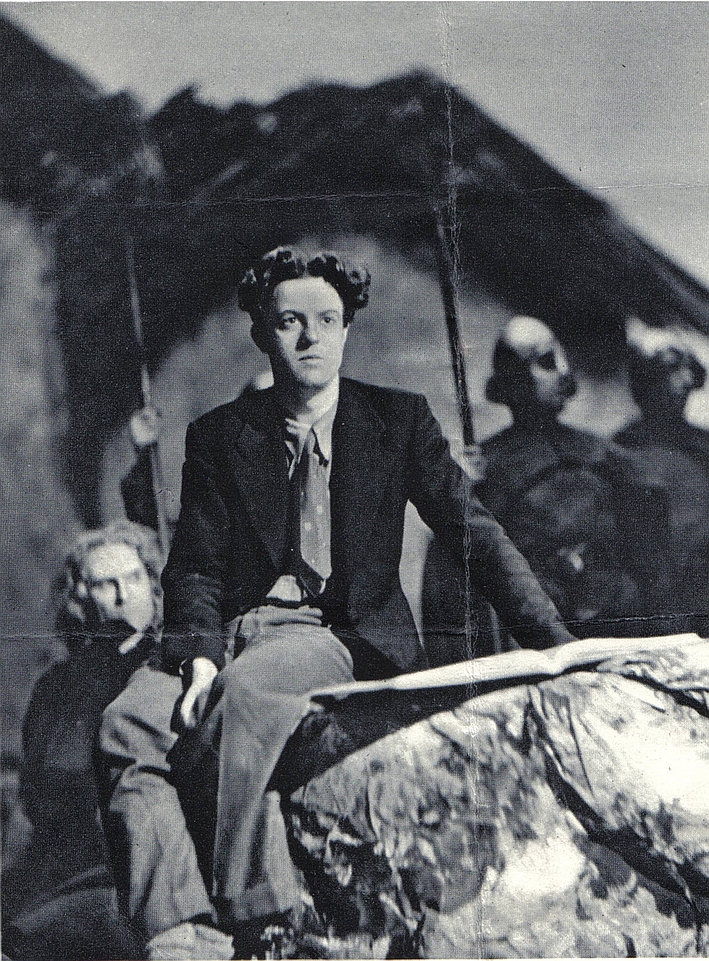 Covent Garden 1938
Covent Garden 1938
George Lloyd showed his talent as a composer early. He began composing at the age of 9, embarking on serious study at the age of 14, although he was mainly educated at home because of recurrent bouts of rheumatic fever. Lloyd was trained in the dramatic aspects of opera by his father, who would regularly give him scenes from English plays to set to music. Later he studied violin with Albert Sammons, as well as composition with Frank Kitson and Harry Farjeon. He was a student of music at Trinity College, London.
Lloyd’s first symphony, written at the age of 19, was premiered in 1932 by the Penzance Orchestral Society and was performed again in 1933 by the Bournemouth Municipal Orchestra, with the composer conducting on both occasions. A second symphony had its premiere in 1935 and was soon followed by a third. George Lloyd and his father William formed The New English Opera Company in 1935 with the intention of establishing a new school of English opera. Lloyd's first opera Iernin made his reputation in 1935, and he attracted the attention and approval of Rutland Boughton, Thomas Beecham, John Ireland, Ralph Vaughan Williams, and John Christie at Glyndebourne. His father was later elected to the Board of Grand Opera Productions, the management company for The Carl Rosa Opera Company and George consolidated his reputation with his second opera, The Serf, which was staged at Covent Garden in 1938.
Military Service
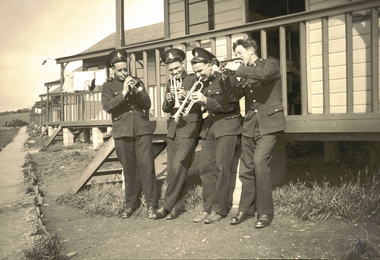 Royal Marine Bandsmen play jazz 1941.
Royal Marine Bandsmen play jazz 1941.
George Lloyd (right) plays cornet.
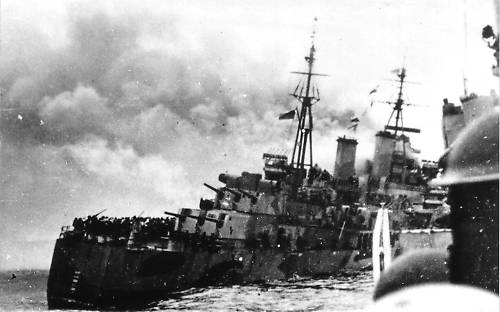
HMS Trinidad on fire and sinking, May 1942
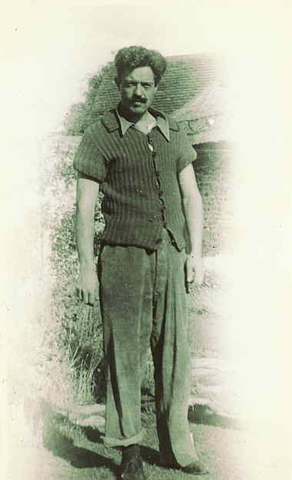 Out of hospital 1943
Out of hospital 1943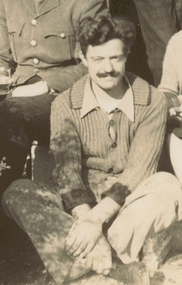 West Wittering 1944
West Wittering 1944
Lloyd’s musical career was interrupted by World War II. He served with the Royal Marines as a Bandsman on board the cruiser HMS Trinidad escorting Arctic convoys to Murmansk. When in action, the Bandsmen manned the Transmitting Station, situated deep in the hull of the ship, controlling the gunnery. In 1942, during an engagement, the Trinidad fired a faulty torpedo which travelled in a circular track and hit the ship, fracturing a large fuel oil tank. 17 of Lloyd's shipmates, of whom 9 were Bandsmen, were drowned in the fuel oil, and he was the last man to escape from the compartment.
The traumatic experience of the torpedo strike had a profound effect on Lloyd's mental, physical and emotional health. He spent several months in the Naval Hospital at Newmachar, near Aberdeen, suffering from shellshock (PTSD) which caused nightmares, anxiety, inability to speak, and an uncontrollable shaking of the limbs. Although these symptoms gradually lessened over the next 20 years, George acknowledged that he could not have recovered without the care and attention of his Swiss/Irish wife Nancy (née Juvet). George and Nancy had married in 1937 a short time after they met, and after he was injured in HMS Trinidad, Nancy was determined that he should regain his health and begin composing again.
The Post-War Years
 |
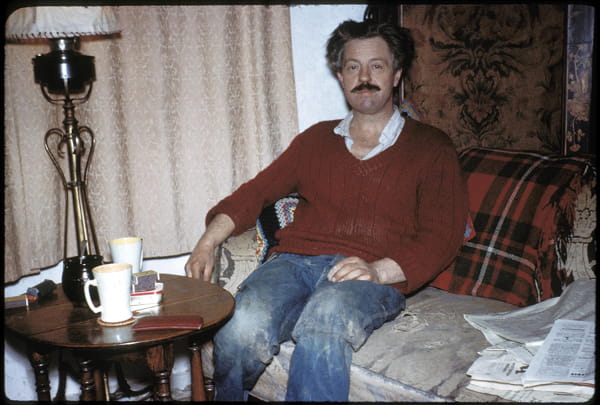 |
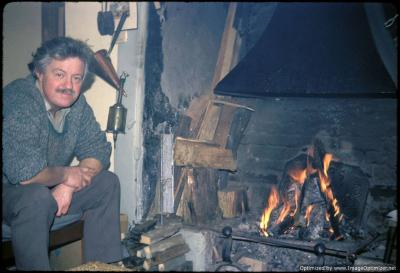 |
| At Ryewater Gardens with Nancy and her sister | After work at Ryewater Gardens | The Old Keeper's Cottage, Ryewater |
In 1945 Nancy took her husband to Switzerland and to aid his recovery she introduced a regime of diet, exercise and alternative therapies which he maintained for the rest of his life. By 1947 Lloyd had resumed composition and written his Fourth and Fifth Symphonies. In 1949 he was commissioned to write the opera John Socman for the 1951 Festival of Britain and returned to England to take up full-time residence in Dorset. In 1951 however, Lloyd's health deteriorated further, and he abandoned his full-time musical career.
For the next 20 years, in addition to intermittent composition, he was a market gardener and grew mushrooms and carnations. He composed regularly from 4:30 AM to 7:30 AM, before each working day. During this period, he continued to write in a tonal, melodic style, contrary to the prevailing modernist ideology of the avant-garde. This led to difficulties obtaining performances and broadcasts of his music. He recalled:
"I sent scores off to the BBC. They came back, usually without comment. I never wrote 12-tone music because I didn't like the theory. I studied the blessed thing in the early 1930s and thought it was a cock-eyed idea that produced horrible sounds. It made composers forget how to sing."
Obituary: George Lloyd The Times 6 July 1998
Return to Success
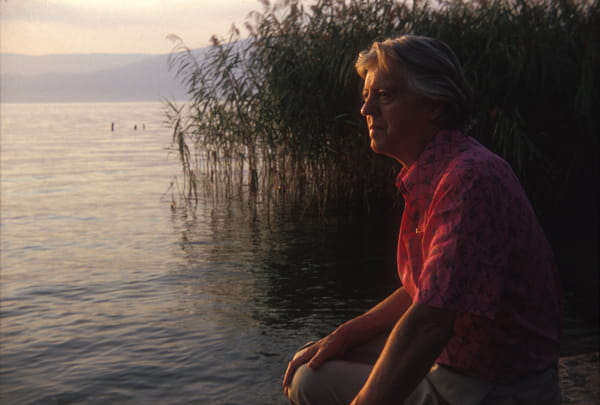
By Lake Neuchatel 1989
In 1972 Lloyd sold his market garden business and moved to London to "pick up the pieces of my musical life" as he put it. So began an extraordinary and productive Indian summer. He began to receive greater attention, and a number of scores were accepted for broadcast by the BBC.
He developed a strong relationship with the BBC Philharmonic Orchestra, through their senior producer Peter Marchbank, who conducted the premiere of Lloyd's Cello Concerto with the Alexander Baillie and the Portugese National Orchestra.
The BBC Philharmonic recorded and broadcast seven of his symphonies under his own baton, and three symphonies conducted by Sir Edward Downes, including Symphony No. 8 in 1977, and his Symphony No. 6 which received a performance at The BBC Proms in 1981.
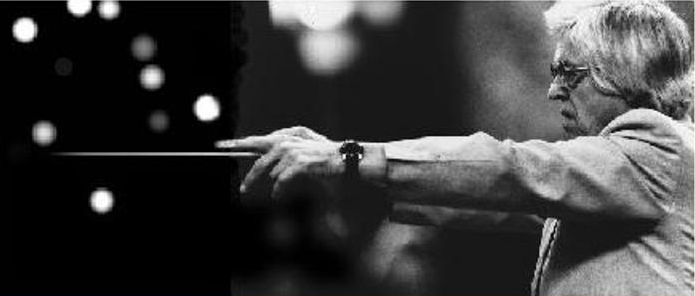 |
Lloyd was an early adopter of digital technology, and established his own recording, production, publishing and distribution company, Albany Records UK). In association with their sister company Albany Records (USA) the label made 22 CD recordings in all, on which Lloyd conducted his own music, working with ensembles such as the Philharmonia, and the London Symphony Orchestra. Lloyd was for two seasons Principal Conductor of the Albany Symphony Orchestra in New York State, where he frequently conducted his own symphonies and works by 20th century American composers. He was also a guest conductor at the Hong Kong Philharmonic Orchestra, which premiered a number of his works. The US premiere of Lloyd’s Seventh Symphony was given by the Chicago Symphony Orchestra under Neeme Jarvi. Lloyd conducted 25 CD recordings in all, in addition to works recorded by Sir Edward Downes and others. Only two orchestral works and his opera The Serf remained unrecorded at the time of his death. His works for brass band are regularly adopted as test pieces in brass band contests throughout the UK and Europe. |
Lloyd had heart trouble toward the end of his life. He recovered sufficiently to complete a setting of the Requiem Mass three weeks before he died in London on 3 July 1998 at the age of 85. Lloyd inscribed the score, his last composition, "Written in memory of Diana, Princess of Wales". His wife Nancy survived him by 18 months. The couple had no children.
Lloyd was twice Composer of the Week on BBC Radio 3, and the 2013 BBC Proms programme included a performance of his Requiem, and his HMS Trinidad March was played on the occasion of the Last Night of the Proms. Also in 2013, the British Library acquired all of George Lloyd's autograph music manuscripts, sketches and draft scores.
.......................................
The George Lloyd Archive and Music Library is administered by Lloyd’s nephew, William Lloyd,
who was the composer’s business manager, executive producer and record distributor for the last 10 years of George’s life.
The George Lloyd Society retains the copyrights to the musical works and maintains the archive of composer's copies of scores and extensive correspondence.
In 2023, the publishing rights to all Lloyd's own recordings of his own work were acquired by Lyrita Nimbus Arts.
  |

